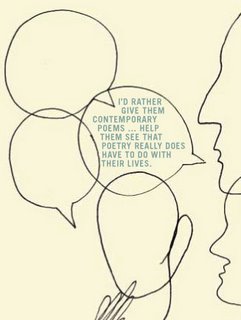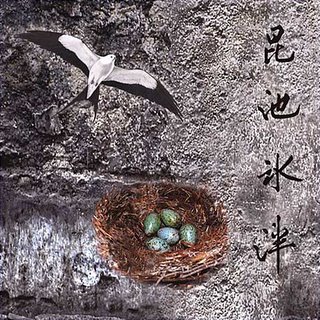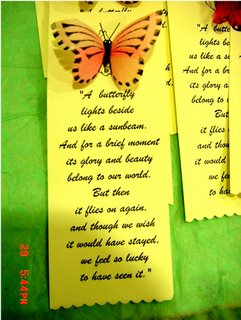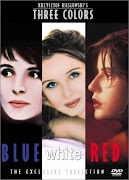 VERY BASIC. Or so Dr. Resil Mojares echoes, at the 2005 Cornelio Faigao Memorial Writers Workshop in Cebu, the smart-alecky point of a fellow writer who simplifies the complex world of a difference between prose and poetry. "Prose is planned parenthood," he grins, "while poetry is accidental pregnancy."
VERY BASIC. Or so Dr. Resil Mojares echoes, at the 2005 Cornelio Faigao Memorial Writers Workshop in Cebu, the smart-alecky point of a fellow writer who simplifies the complex world of a difference between prose and poetry. "Prose is planned parenthood," he grins, "while poetry is accidental pregnancy."About that distinctive fissure or face-off in literature, Mark Halliday explains more in this reprint from The Georgia Review:
"SOMETIMES Sometimes fatigue or a journal stuffed with bad poems throws us into poetry-dismay, even poetry-disgust, but poetry soon wins us back. A good poem comes along that is damned appealing; it has charisma, it has a peculiar panache, it cuts a new path through experience, it expresses - or it is - a new truth, or new edge of truth. Life is suddenly undreary. And this poem is so strangely sure of itself! Where did it get such nerve? It has a quality I will call arrogance.
A poem, just by being a poem, says ‘I am more significant than all your chatter, all your information, all your reports and articles, more significant even than all your stories, more important than any page of Crime and Punishment or Women in Love or Middlemarch - even, in a mysterious way, more important than each of these novels as a whole. You must gaze down into the well of me. You may never see to the bottom.’
The essential sign of poetry's arrogance is white space. Poetry takes unto itself the luxurious, ostentatiously high-class option of not reaching the right hand margin. Prose must pack itself into the common area, the second-class accommodations, filling the page all the way to the margin regardless of whether it's referring to the principles of Baroque architecture or the Meaning of Meaning or what some Hollywood star wore to a premiere. The unfilled part of a poem's page is the ornamental garden surrounding the castle of superior meaning. A poem says, ‘I can drape myself in white space like a mink coat. I stand apart from the mundane tide of utilitarian utterance. I create and require a respectful silence around me.’
The arrogance of poetry is titanically oppressive in the silence immediately after a poem’s last line. That silence stares at you. It says, ‘Do you or do you not get it.’ It says, ‘Do you love me? You should. If you don't, you've missed something. The problem is yours - some blindness, some crudeness, some insensitivity to nuance.’
If a person said that to you, or if a person’s way of falling silent implied that, you would respond energetically - you would walk out of the room, or laugh in the person's arrogant face, or ask intense questions, or express remorse. Like such a person, a poem refuses to be taken casually. If you do take a poem casually, you feel slothful, shallow, flippant - a feeling that is very different from thinking hard about a poem and deciding it is itself slothful, shallow, flippant. Fortunately, persons don’t often have the gall to say, ‘If you don't love me, the problem is yours.’ Poems say this every time.
 Poems keep stroking their own hair. A poem is like the person at the table who won’t speak unless everyone else hushes to listen. A poem is like the person whose tone announces: Enough of your jabber. Now I shall speak words worth remembering. You should want to chisel these words in marble.
Poems keep stroking their own hair. A poem is like the person at the table who won’t speak unless everyone else hushes to listen. A poem is like the person whose tone announces: Enough of your jabber. Now I shall speak words worth remembering. You should want to chisel these words in marble.Poetry’s demand for special attention is one aspect of its essential arrogance. Another is its pride in implication. A poem always knows - or carries - something it doesn't spell out. A poem is like someone who conveys crucial meanings with subtle changes of gaze and gesture, with eyebrows rather than words; a poem suddenly stares at you to see if you can meet its challenge. This gaze is charismatic - when it is not absurdly portentous. We are beguiled and enthralled by the poem’s sublime implicitness - when we are not irritated and repulsed.
Confronting a poem, we often have to work hard to decide whether its oddity or difficulty comes from a wonderfully forgivable, or from a repulsive arrogance. The arrogance of all poetry is tiring - like both good sex and bad sex.
Poems are mostly read by people already hooked on poetry. How does a novelist feel, reading a book of poems? The novelist may feel a puzzled respect for someone who doggedly writes a kind of literature unlikely to bring wealth or fame. At the same time, the novelist may feel annoyed when the poet offers such small things - coy, anemic perceptions and teasing metaphorical connections - as if each one were terrifically unusual - a day' s work! - enshrined by costly whiteness on all sides, commanding a hushed and riveted attention. The novelist has produced countless equally sharp images and insightful connections and richly evoked moments - hundreds in each novel! And the novelist has given these gifts to the reader without poetry's preening insistence that each morsel is a sublime Godiva truffle. The novelist may think the poetry is ‘good’ but that her own work by comparison is admirably unpompous and generous.
 But Thomas Hardy, one of the few writers great as both poet and novelist, felt that greatness in poetry mattered more than greatness in prose. Isn't this an unreasonable bias?
But Thomas Hardy, one of the few writers great as both poet and novelist, felt that greatness in poetry mattered more than greatness in prose. Isn't this an unreasonable bias?To be calmly sensitive and thoughtful each time a poem is in front of your eyes, but to turn away for rest and refreshment before either exhaustion or cynicism sets in. This nearly angelic response is humanly possible, but it is amazingly hard to sustain.
Poems crowd toward you like the shades of the underworld when Odysseus visits; they crave the hot blood of attention.
Or they crowd toward you like refugees mobbing a United Nations worker who dispenses far too few bags of grain from the back of a truck.
Notice the inconsistency of that simile with the analogy of a poem's being like a proud high-chinned person requiring a respectful hush around his or her augustness. On the level of self-presentation, each poem is that dignitary; meanwhile, on the practical level, seen from outside, each poem is more like a famine victim in danger of being trampled beneath the feet of its fellow poems, all famished for the reader's ration of attention.
The poem seems not to have noticed its actual social situation. Picture a crowded, deafening cocktail party; in the middle of the room stands the poem, addressing itself to anyone and everyone, not even shouting, regardless of whether anyone listens. In real life this is a kind of madness. In art, it is the arrogance of art...

























































No comments:
Post a Comment